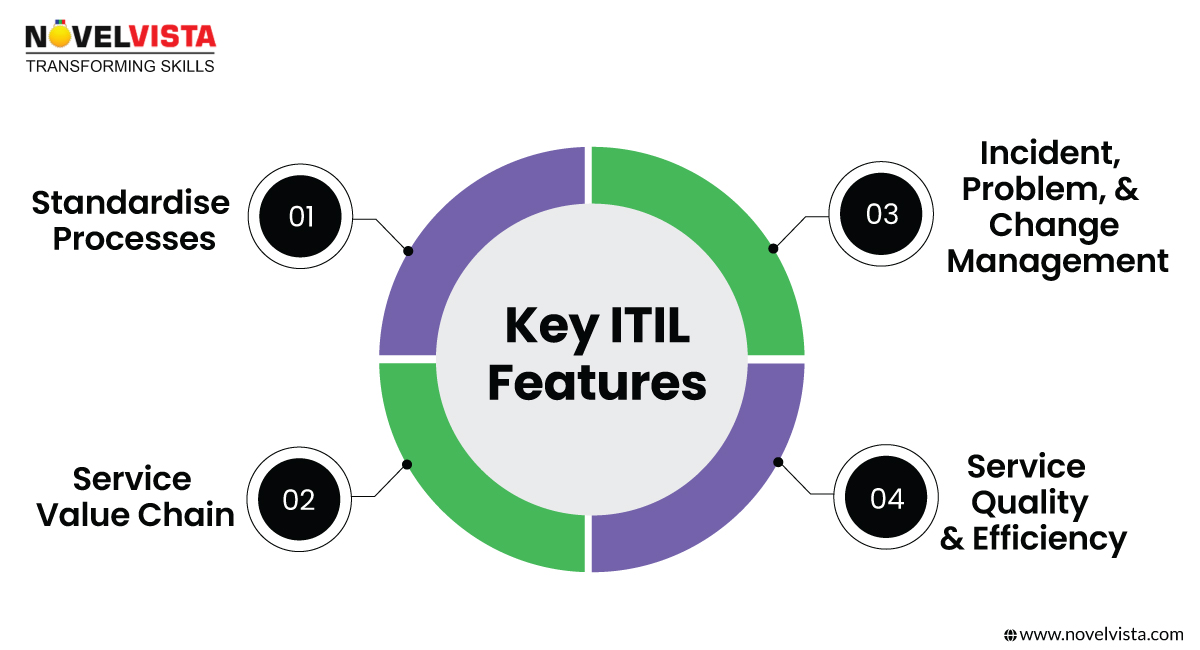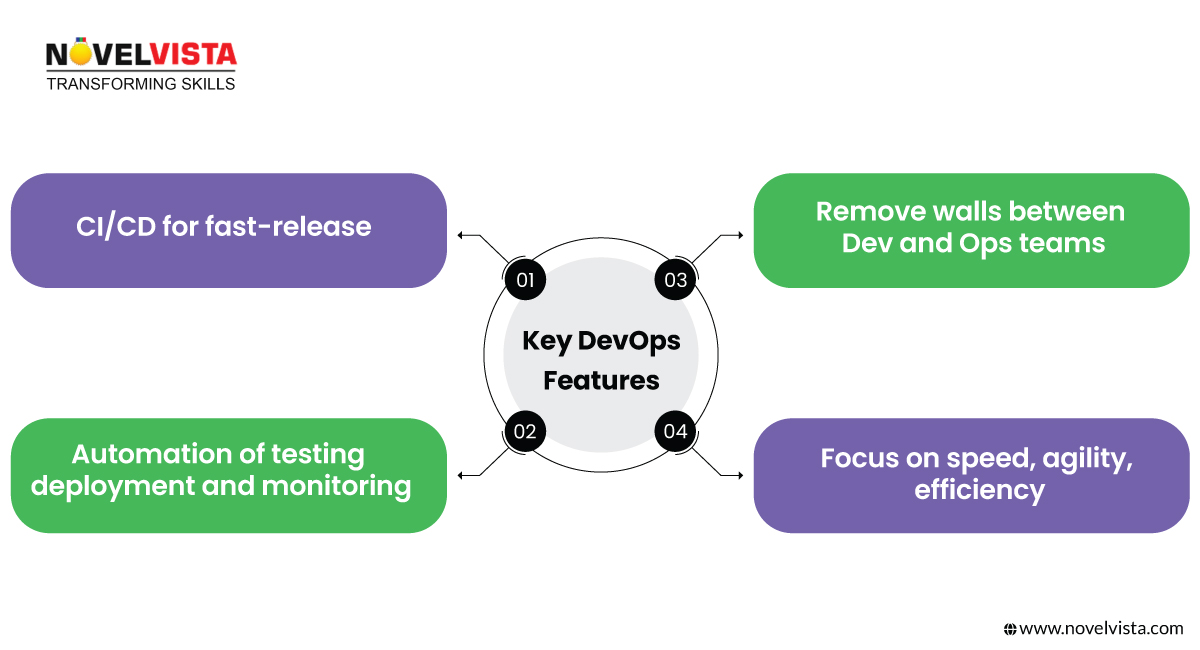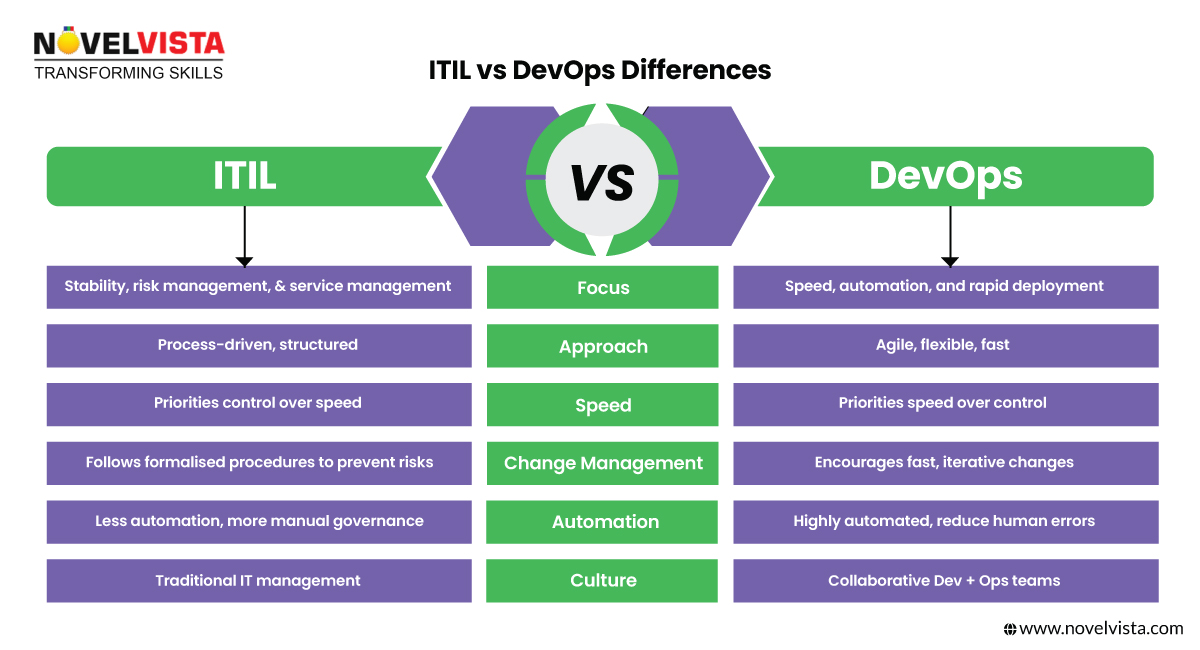Information Technology Infrastructure Library (ITIL) is a Service Management framework. The framework is defined as a supporting structure around which something can be built. It is descriptive and flexible.
ITIL was initiated by Government of UK in 1989, initially handled by Central Computers and Telecommunications Agency (CCTA) which was later renamed to Office of Government Commerce (OGC). Now it is owned, managed and supported by AXELOS.
As we are in the era of 4thIndustrial revolution, business is growing multifold and so is the demand for services to support a growing business. Business is adopting all emerging technologies (IOT, AI, Blockchain, Cloud Computing, etc) for enhancing the consumer experience. Owing to this demand from business, technologies are growing faster than ever before and have made IT a very important driver for Business. Therefore, the ways and procedures for IT Service Management have also evolved.
ITIL is an industry-wide most commonly adopted framework. ITIL has evolved from process-based delivery of services to end to end value delivery.ITIL4has a focus on co-creation of value through service relationship. It introduces Service Value System for enabling Value co-creation. Service Value system provides guidance to the organisation in all circumstances and scenarios. It includes 5 components (Guiding Principles, Governance, Service Value Chain (SVC), Practices and Continual Improvement)
Know more about ITIL here:What is ITIL
Before we compare, let’s understand ITIL.
ITIL (Information Technology Infrastructure Library) is a structured setup for IT service management (ITSM). It helps organisations align IT services with business needs while maintaining stability, governance, and risk management.

Want to learn more? Check out theITIL 4 Foundation Certification Training Courseto get started!
Now, let’s talk about DevOps—the game-changer in software development.
DevOps is a collaborative approach that combines development (Dev) and operations (Ops) to give the ability for faster, automated, and more efficient software deployment.

Interested in DevOps? Start with theDevOps Practitioner Certification Coursetoday!
DevOps works really well with other methodologies like Lean and Agile. DevOps’s primary objective is to increase the speed from Development to Operations so it focuses on the reduction of waste and maximizing value for consumers. DevOps creates a shorter feedback loop so that defects can be corrected while working on new components. This improves the wider acceptance of the product as well as reduces the rework on correction of the final product as compared to the waterfall method. DevOps emphasizes on building an Automated Deployment pipeline in order to increase the velocity and reduce the defects/failures.
Read the full article here:What is DevOps and all you need to know
Misconception: If DevOps is implemented then there is no need for ITIL.
While automating operations may seem to be the goal of DevOps (NoOps), there will always be a need for human competencies and roles. Role of Ops is evolving significantly similar to the role of Dev. This is called as NewOps.

Despite their differences, ITIL and DevOps share some key principles:
So, instead of choosing one over the other organisations can integrate both to balance speed and control.
Want to learn how they work together? Read more onDevOps and ITIL.
ITIL4 has focused on Continual Improvement and suggests that everyone in the organisation should focus on continual improvement in every step of their day to day activities. ITIL4 emphasizes on implementing improvements to existing products and services, and implementation of digital transformation projects. Wherein new applications and technologies would be built and implemented. This would involve different teams mainly Dev and Ops. DevOps can be used in building new application and toolsets and also deployment of these.
DevOps can also contribute to improving existing products and services. DevOps would increase the pace of change/releases and also the success rate of changes/releases, through the automated deployment pipeline. Automation would further help in better collaboration between involved stakeholders.
ITIL 4 has introduced 34 ITIL Practices, 14 General Management Practices along with 17 Service Management Practices and 3 Technical Management Practice. ITIL 4 is more focused on enabling co-creation of value and to do that Value Chain activities are spanned across the business and not only limited to IT. This approach would enable more collaboration amongst internal and external stakeholders in the organization. ITIL4 is flexible and can be easily used with other frameworks and practices such as Prince2, PMP, Agile, DevOps, etc.
As mentioned in one of my previous blogs(Differences between ITIL V3 and ITIL4), ITIL V3 unintentionally missed guidance on Build part of products and services. As per ITIL V3 once service design is created it moves to the implementation phase. There was no guidance on a build of products and services as per design. It directly moved to implementation/transition post design was created. This gap in the lifecycle stages created an opportunity for adopting other practices like DevOps, Agile, SRE and many more for supporting build.
ITIL4 has introduced guidance on Obtain/Build as one of the SVC activities. ITIL4 suggests using DevOps, Agile, SRE, etc in Obtain/Build activity of SVC.
Let’s Understand what is DevOps before we discuss the relationship of ITIL4 and DevOps.
SVC helps in capturing the business requirement for new products and services or enhancement to existing products and services. The first activity in SVC is to “Engage” with stakeholders to capture their requirements. Second activity is to create a “Plan” for those requirements. The third activity is to create a “Design & Transition”. Then components are built under the “Obtain/Build” activity, tested under “Design & Transition” activity, deployed in Ops and finally supported under “Deliver & Support” activity of SVC.
DevOps can be used to automate the deployment pipeline to reduce human efforts and errors. This would help in capturing immediate feedback on deployed components, would increase the speed of change/release deployments. As we are going to follow one of the ITIL guiding principles “Progress Iteratively With The Feedback” this would increase the success rate of changes/releases. In turn, enabling co-creation of value for Consumer and Business by reducing the overall impact and improving ROI.
ITIL4 and DevOps are here to complement each other. ITIL being Service Management framework provides the support for products and services that are being built and deployed using DevOps practices. ITIL 4 has introduced 7 Guiding Principles as one of the components of Service Value System.
DevOps also enables the use and implementation of Agile& Lean concepts. This helps in the reduction of waste by maximizing the value and improvement in ROI, creating a solid foundation for the integration of ITIL4 and DevOps.
Absolutely! Here’s how:
Wondering about ITIL’s structured approach? Read more on theITIL Certification Meaning.
Looking for an alternative? Check outDevOps Alternativesfor other IT methodologies!
Here are the benefits of ITIL4 & DevOps which we can conclude from above:
A global e-commerce company implemented DevOps for faster feature releases but struggled with stability issues.
Solution?They integrated ITIL change management with their DevOps automation pipeline.
Results?
Want to see more success stories? Learn from IT leaders using theService Value Chain.
The real answer? Neither is “better”—it depends on your business needs.
A considerable debate about IT service management and software development often arises: ITIL vs. DevOps. Are they opposites, or can they work together?
Some argue that ITIL’s structured approach vs DevOps flexibility makes them completely different. Others say ITIL governance vs DevOps speed means they can never fully get along. But the truth? They’re not rivals—they go well with each other.
Let’s break down the ITIL vs DevOps differences, explore their similarities, and understand how ITIL and DevOps integration can boost IT success!
Learn how to balance speed and control with ITIL and DevOps integration
If ITIL vs DevOps is better, the answer is simple: you need both!
So, instead of choosing one over the other, organizations that integrate ITIL and DevOps get the best of both worlds—fast innovation without losing control.
Want to level up your IT career? Start withNovelvistaand explore our expert-led training programs!
Confused about our certifications?
Let Our Advisor Guide You